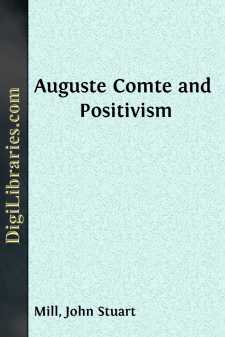Categories
- Antiques & Collectibles 13
- Architecture 36
- Art 48
- Bibles 22
- Biography & Autobiography 813
- Body, Mind & Spirit 142
- Business & Economics 28
- Children's Books 15
- Children's Fiction 12
- Computers 4
- Cooking 94
- Crafts & Hobbies 4
- Drama 346
- Education 46
- Family & Relationships 57
- Fiction 11828
- Games 19
- Gardening 17
- Health & Fitness 34
- History 1377
- House & Home 1
- Humor 147
- Juvenile Fiction 1873
- Juvenile Nonfiction 202
- Language Arts & Disciplines 88
- Law 16
- Literary Collections 686
- Literary Criticism 179
- Mathematics 13
- Medical 41
- Music 40
- Nature 179
- Non-Classifiable 1768
- Performing Arts 7
- Periodicals 1453
- Philosophy 64
- Photography 2
- Poetry 896
- Political Science 203
- Psychology 42
- Reference 154
- Religion 513
- Science 126
- Self-Help 84
- Social Science 81
- Sports & Recreation 34
- Study Aids 3
- Technology & Engineering 59
- Transportation 23
- Travel 463
- True Crime 29
The Subjection of Women
by: John Stuart Mill
Categories:
Description:
Excerpt
CHAPTER I.
The object of this Essay is to explain as clearly as I am able, the grounds of an opinion which I have held from the very earliest period when I had formed any opinions at all on social or political matters, and which, instead of being weakened or modified, has been constantly growing stronger by the progress of reflection and the experience of life: That the principle which regulates the existing social relations between the two sexes—the legal subordination of one sex to the other—is wrong in itself, and now one of the chief hindrances to human improvement; and that it ought to be replaced by a principle of perfect equality, admitting no power or privilege on the one side, nor disability on the other.
The very words necessary to express the task I have undertaken, show how arduous it is. But it would be a mistake to suppose that the difficulty of the case must lie in the insufficiency or obscurity of the grounds of reason on which my conviction rests. The difficulty is that which exists in all cases in which there is a mass of feeling to be contended against. So long as an opinion is strongly rooted in the feelings, it gains rather than loses in stability by having a preponderating weight of argument against it. For if it were accepted as a result of argument, the refutation of the argument might shake the solidity of the conviction; but when it rests solely on feeling, the worse it fares in argumentative contest, the more persuaded its adherents are that their feeling must have some deeper ground, which the arguments do not reach; and while the feeling remains, it is always throwing up fresh intrenchments of argument to repair any breach made in the old. And there are so many causes tending to make the feelings connected with this subject the most intense and most deeply-rooted of all those which gather round and protect old institutions and customs, that we need not wonder to find them as yet less undermined and loosened than any of the rest by the progress of the great modern spiritual and social transition; nor suppose that the barbarisms to which men cling longest must be less barbarisms than those which they earlier shake off.
In every respect the burthen is hard on those who attack an almost universal opinion. They must be very fortunate as well as unusually capable if they obtain a hearing at all. They have more difficulty in obtaining a trial, than any other litigants have in getting a verdict. If they do extort a hearing, they are subjected to a set of logical requirements totally different from those exacted from other people. In all other cases, the burthen of proof is supposed to lie with the affirmative. If a person is charged with a murder, it rests with those who accuse him to give proof of his guilt, not with himself to prove his innocence. If there is a difference of opinion about the reality of any alleged historical event, in which the feelings of men in general are not much interested, as the Siege of Troy for example, those who maintain that the event took place are expected to produce their proofs, before those who take the other side can be required to say anything; and at no time are these required to do more than show that the evidence produced by the others is of no value. Again, in practical matters, the burthen of proof is supposed to be with those who are against liberty; who contend for any restriction or prohibition; either any limitation of the general freedom of human action, or any disqualification or disparity of privilege affecting one person or kind of persons, as compared with others. The à priori presumption is in favour of freedom and impartiality. It is held that there should be no restraint not required by the general good, and that the law should be no respecter of persons, but should treat all alike, save where dissimilarity of treatment is required by positive reasons, either of justice or of policy. But of none of these rules of evidence will the benefit be allowed to those who maintain the opinion I profess....
















